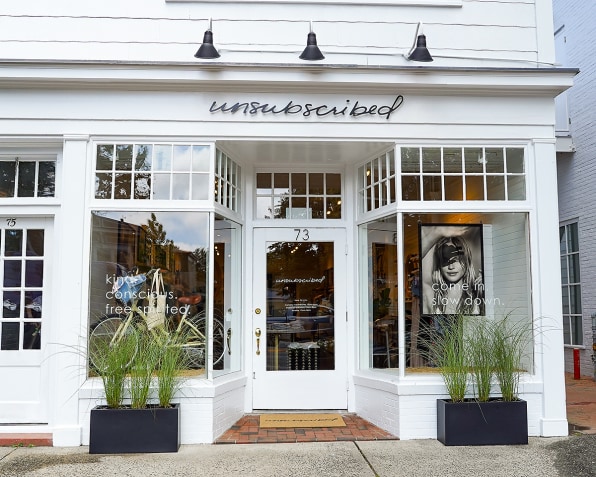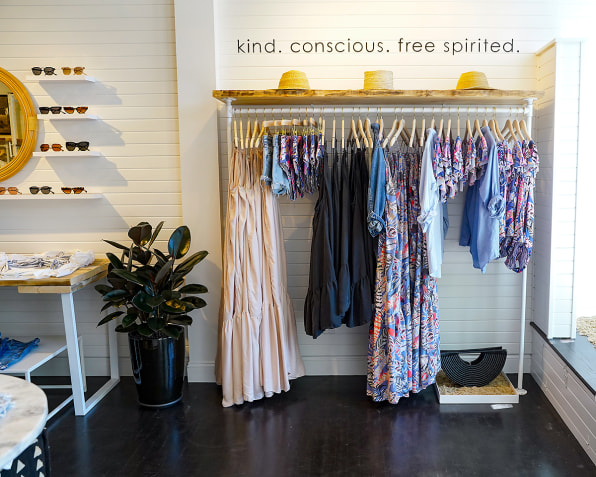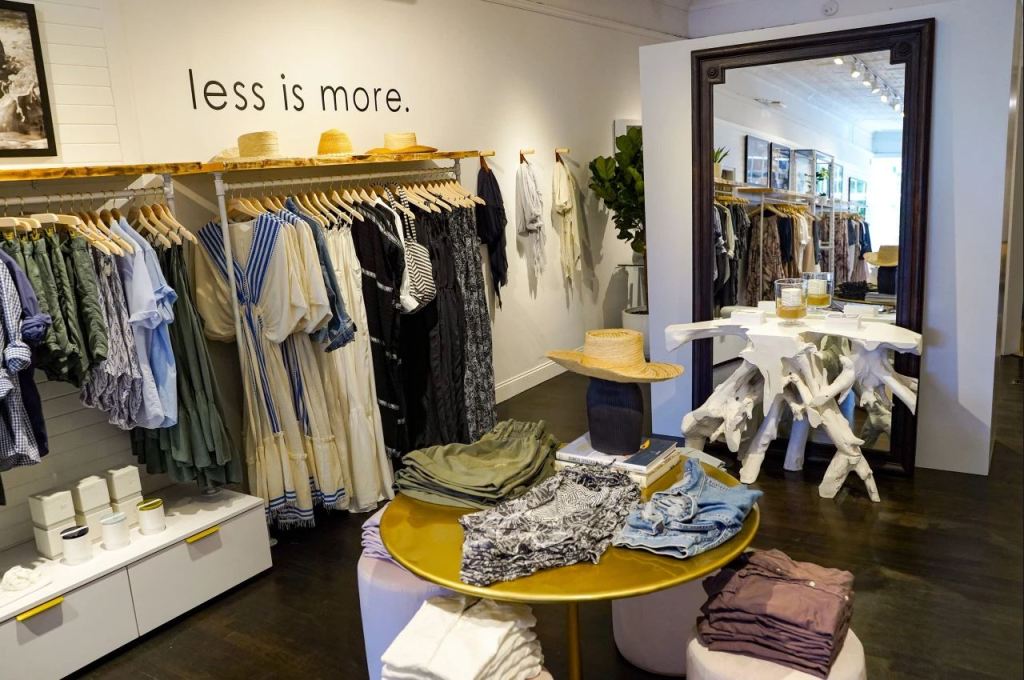If you’re lucky enough to escape to the East Hamptons for the summer, you might stumble upon a newly opened boutique called Unsubscribed.
If you don your mask and pop into the store, you’ll be greeted by vintage wood product displays and a lot of open space. The vibe is what you’d expect in a typical high-end shop in the neighborhood. There are few clues that Unsubscribed is, in fact, an experimental new project from AEO Inc., the parent company of iconic teen mall brands American Eagle and Aerie. While it has a tiny footprint for now, this move could be a glimpse into how retailers will survive the ongoing retail apocalypse, which has only been exacerbated by the coronavirus lockdowns.

Unsubscribed is the brainchild of Jennifer Foyle, the global brand president of Aerie. The store features its own private label collection of recycled nylon swimsuits, silk dresses, cashmere sweaters, and oxford button downs that cost between $40 and $550. They’re classic designs that are meant to be worn for years, in stark contrast to the fast fashion trend of the other AEO brands, which sold affordable clothes that reflected the latest trend. “Unsubscribed is a slow fashion concept,” Foyle says. “[Fewer] deliveries, elevated quality, beautiful design.” Unsubscribed also curates other labels, like sustainable shoe brand Veja and Indego Africa, which are handcrafted accessories from female artisans in Rwanda and Ghana.It’s a challenging time for AEO to be launching Unsubscribed, which is, for now, a single store concept. Consumer spending has been down since the coronavirus lockdowns began in March, and retailers with large brick and mortar footprints have been hit particularly hard. Neiman Marcus declared bankruptcy in April, and just this week, Brooks Brothers and Sur La Table followed suit. AE and Aerie both struggled with decreased revenues in the first quarter.
But this crisis also opens up opportunities for retailers to rethink their business models. AE and Aerie have invested heavily in their e-commerce platforms and digital presence, which has paid off during this crisis, with online sales increasing by 33%.

But AEO also appears to be rethinking its very concept of brick and mortar. From this experiment, the company appears to be testing out the theory that the future of retail will have a lot in common with retail of the past. Instead of going to suburban malls, consumers might be more inclined to visit stores close to where they live, work, and dine. And instead of experiencing the sensory overload and decision fatigue of large format stores packed with products, they’ll prefer to shop at smaller stores with highly curated collections.Will it work? We’ll have to wait and see. But other large retailers, like Sephora and Nordstrom, have also been shifting toward smaller stores embedded in neighborhoods, so AEO certainly seems to be heading in the right direction.

